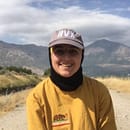Stereotypically, people tend to believe that the women of Islam are oppressed. That women are taught to be quiet and listen to the men of the religion, when that couldn’t be further from the truth. Often times the people who believe this are ones who have not taken the time to look at the history of Islam, and see the major role women have played. So, here’s a list of 5 women who play a major role in the history of Islam to get you started.
1. Fatimah
Fatimah is the daughter of Khadijah and Prophet Muhammad (PBUH), and the only daughter to live past both their deaths. Due to prosecution, she grew up extremely fast, and was only ten years old when she helped clean her father of waste that had been dumped on him by a Quraishi man. Fatimah cleaned off her father, and then prayed against the man who had done this to him. Fatimah also aided her father after he was driven out of Ta’if and pelted with stones and bled to the point his shoes were filled to the brim with blood. Fatimah cleaned his wounds and once again prayed for the people who had done this to him. Throughout her life Fatimah fed the poor, even if it meant she could not eat, and her kind character earned her the title of “the pure one.”
2. Maryam
Maryam (Mary) was one of the people that Prophet Muhammad (PBUH) said perfected her faith and was assured a place in Paradise. Maryam is the mother of Jesus (PBUH), but that is not the reason I have included her on this list. Maryam played such a major role in Islam, there is a whole surah of the Quran named after her. Maryam was a virgin mother, and while she was pregnant, she left her village and gave birth in the desert on her own. When she returned the people met her with accusations of sin. Maryam was an advent follower of Islam so the people could not believe that when she returned, she did so with a child. The accusations were only silenced when Jesus (still a newborn at the time) spoke up and cleared her name. Maryam’s devotion and strength shows women in Islam that if they are true to what they believe they can make it through anything.
3. Zainab b. ‘Ali
Zainab stood in front of the people of Kufa who had betrayed the Imam in Karbala. Zainab was known for her virtuous life, her character had all the best attributes. Zainab stood and gave a sermon in front of Yazid (leader who was against Islam and Imam) with bravery and confidence that shook the people who were gathered. Zainab said,
“By Allah, you cannot remove us from the minds (of people), and you cannot fade our message. You will never reach our glory and can never wash the stain of this crime from your hands. Your decisions will not be stable, your period of ruling will be short, and your population will scatter. In that day, a voice will shout: ‘Indeed may the curse of Allah be upon the oppressors […]’”
Zainab was a force against oppression and injustice; she was a woman of patience. Zainab had the greatest endurance from delivering a powerful sermon in front of Yazid and his gathering to awakening the ignorant and showing them the message of Islam. She saw the martyrdom of her loved ones before her very eyes, yet she never question her submission to Allah, and that was monumental. Zainab showed how BOLD Muslim women were (and still are), and how important they were (and still are) to Islam. Zainab is the embodiment of a strong, powerful, and independent woman. She is someone all Muslims, men and woman, look up to and admire. Her strength and powerfulness was unbelievable and she demonstrates what it truly means to be a Muslim woman.
4.Hajar
This is the wife of Abraham, who was instructed by God to leave Hajar and her newborn son in the middle of the desert. When told by Abraham that he was commanded by God to leave her, she said “I am satisfied to be with God.” So as the days went by Hajar and her son baked away in the heat of the desert, and finally their food and water ran out. Hajar left her child by a tree and began her search for water; she climbed the hills of Safa and Marwah. Her journey that she completed seven times would have taken hours and hours, and when she returned she found an angel by her son. The angel dug a hole in the ground and there in its place a flow of water appeared, Hajar created a settlement around the water source, which still flows to this day. From this water source, the city of Mecca had its beginnings. The water from that source is referred to as Zamzam, which is holy water that Muslims drink in hopes of their prayers coming true. Muslims commemorate Hajar’s journey when they attend Hajj every year. (Fun Fact about the water source referred to in this story, the water level never falls and to this day it has never decreased. No matter how much water is taken out it remains at the same level.)
5. Asiyah
Asiyah was the wife of a baby killing sociopathic Pharaoh. When Moses was placed in a basket and drifted down the river it was Asiyah that found him and fell in love with the child. She convinced her husband to let her keep the child, and raise him. When the child grew up he became Prophet Moses (PBUH), and he preached the message of God. The Pharaoh however, was convinced he, himself, was God and demanded the people worship him. Asiyah however, believed in the God Moses spoke about, and so she joined the religion of Islam keeping her faith a secret from her husband at first but eventually exposing it to him. When the Pharaoh found out about this he commanded her to be tortured, but through it all Asiyah stood tall and firm in her belief of the God Moses spoke about. Eventually, she succumbed to the torture in died, but she never once wavered from the path of Islam.
So there you have it. Perhaps Muslim Women were among the first to truly show that they don’t need a man to achieve greatness or provide for them; they can do it themselves. And that my friends, is the Islam I believe in. So, I will leave you with this, if the women of Islam are oppressed, then why are we the ones who signify the religion so clearly. For when a woman wears hijab, you know instantly her faith, whereas you may question a male. Women are the flags of Islam, and it is only when we stand tall that the religion is whole.



